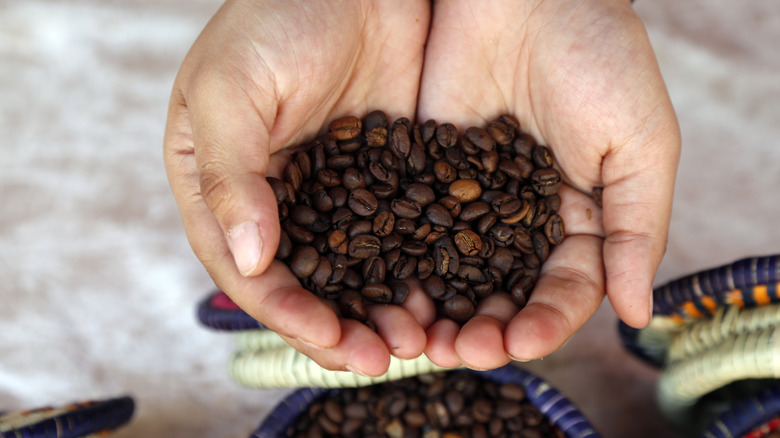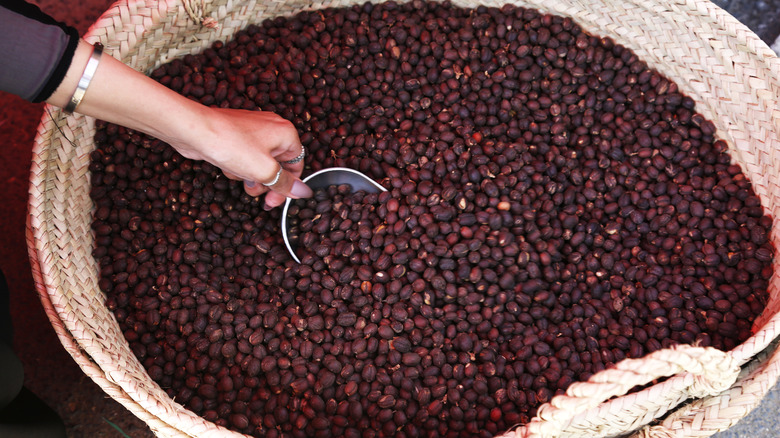What Makes Yemen's Coffee So Special
There are about 70 coffee producing countries worldwide, many of which are fixed in the public mind due to their association with the popular caffeinated beverage. A look at the top producers from 2020, for example, includes such coffee producing heavyweights as Brazil and Colombia, which together with Vietnam and Indonesia account for about 70% of the global market share, per the World Economic Forum. But production isn't the only gauge of significance when it comes to coffee nations. Yemen, for example, doesn't even crack the top 20 in terms of production, but in terms of coffee history and culture, is the equal of any country on earth.
Ethiopia and Yemen are the two countries commonly associated with the birth of coffee, and each has its share of myth, legends, and origin stories. Although the history in both countries are long, it is generally agreed, as Perfect Daily Grind points out, that coffee plants originated in Ethipioa, and coffee drinking and coffee cultivation originated in Yemen. The earliest recorded example dates from the middle of the 15th century, per Qima Coffee, and involve Sufi monks who consumed the beverage to fuel nightlong meditations. Yemen became famous, however, for its trade in coffee, which by the early years of the 18th century was the country's most lucrative export. Yemen had a global monopoly on coffee at this time, as Perfect Daily Grind notes, with trade centered around its chief port.
The most famous port town in coffee history
The town that facilitated Yemen's coffee trade was called Al-Makha, and its chief product became known as Mocha, notes Perfect Daily Grind. Yemen zealously guarded its prized export, and refused to sell seeds or plants. But per Qima Coffee, the smuggling of coffee seeds became a cottage industry, with the Dutch, British, and French all smuggling seeds so that they could start their own production in far-flung colonies. The most famous was the one started by Dutch traders in Java, which according to Perfect Daily Grind, would later contribute to one of the world's most enduring coffee blends: Mocha Java. The competition, however, destroyed Yemen's coffee monopoly. By 1800, observes Qima Coffee, Yemen's production accounted for just 6% of the world's supply.
Today, Yemen's production accounts for an even lower share of the global coffee market (only 0.1%, per Quima Coffee). But its coffee culture remains, one distinguished by the traditional family-owned farms, with trees cultivated at higher altitudes on terraced slopes. Per Al-Aqeeq, the growing methods haven't changed in 500 years, and even today there are no chemicals used. Yemen's distinctive dry-processing — a result of the arid climate — and age-old methods are discernible in every drop, along with characteristic notes of chocolate. The National Coffee Association describes the taste of Yemen's coffee as "deep, rich and like no other." What else would you expect from the country that's been making it longer than any other?

